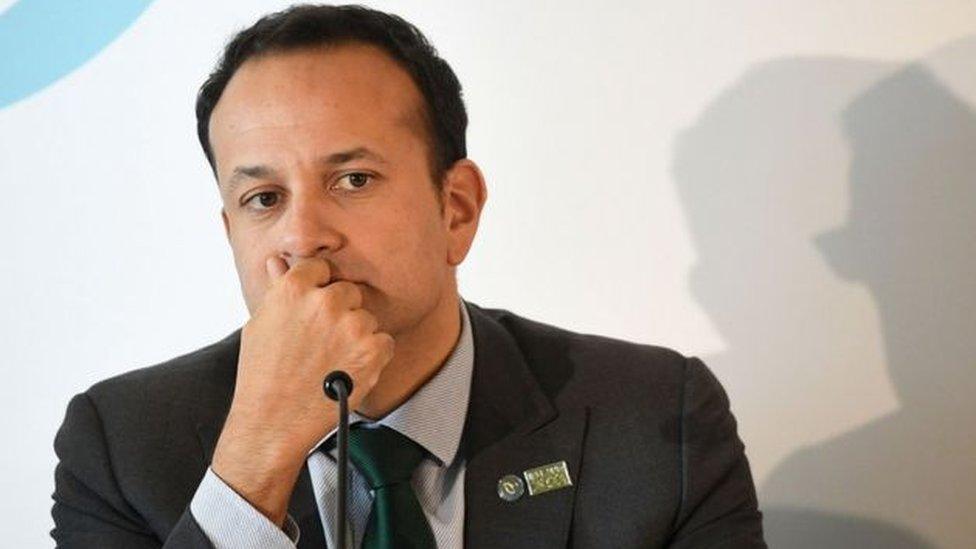Abortion referendum bill: Irish cabinet approves wording
- Published
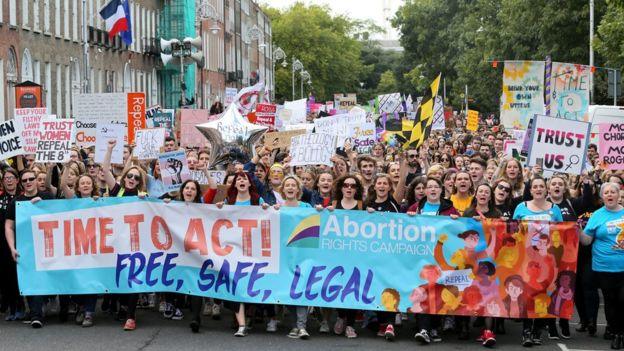
Tens of thousands rallied in Dublin in September for constitutional change
The Irish government has finalised the wording for an abortion referendum giving the go-ahead for voters to have their say on liberalising abortion laws.
Ministers formally approved the referendum bill at a cabinet meeting at Government Buildings in Dublin.
The move comes in the wake of a Supreme Court ruling on Wednesday on protection for the unborn.
It stated that those rights do not extend beyond the right to life.
If the court had found rights were more widespread within the constitution, it may have put the referendum in doubt.
Now, the government can go ahead with its plans to hold the referendum at the end of May.
Currently, terminations are only allowed in the Republic of Ireland when the life of the mother is at risk, including from suicide, and the maximum penalty for accessing an illegal abortion is 14 years in prison.
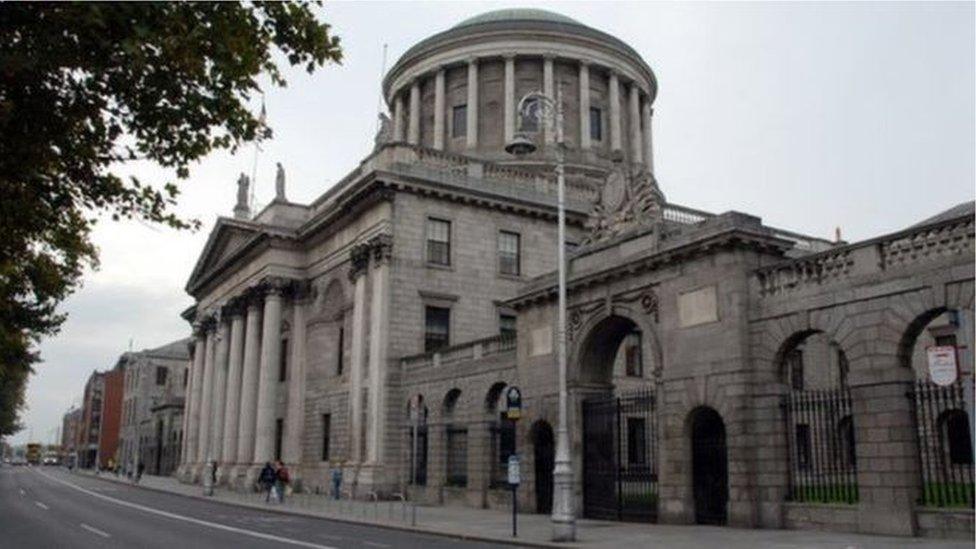
The Supreme Court in Dublin has ruled that the "unborn" has no rights under the Irish constitution
Campaigners are seeking to liberalise the regime to allow for unrestricted abortion up to 12 weeks into pregnancy.
Citizens will be asked whether they want to remove the Eighth Amendment, which gives equal right to life to the mother and the unborn, and replace it with wording that would allow politicians to set the country's abortion laws in the future.
That wording will be: "Provision may be made by law for the regulation of termination of pregnancies."
Taoiseach (Prime Minister) Leo Varadkar said this referendum is about asking citizens to allow women to make major decisions for themselves.
"It's about trusting women to decide, in the early weeks of their pregnancy, what's right for them and their families," Mr Varadkar said.
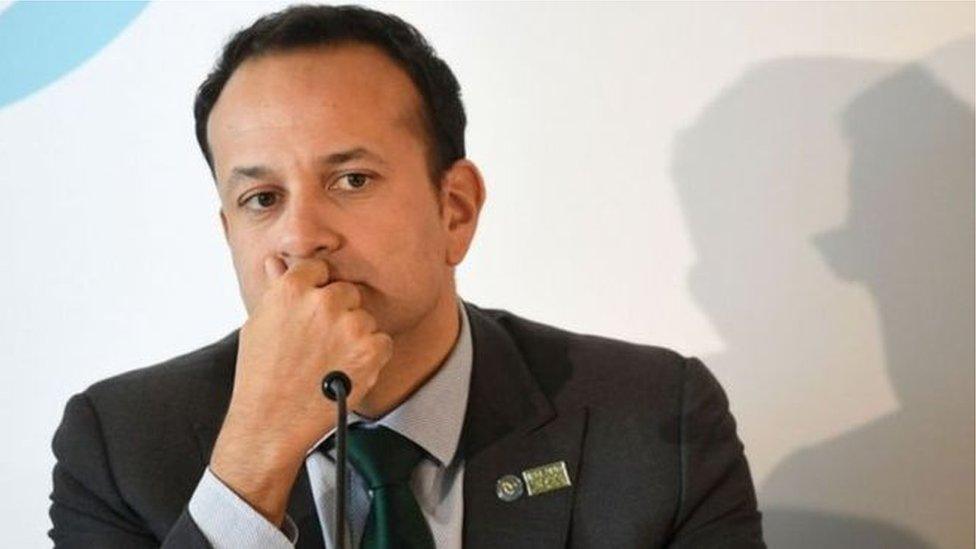
Leo Varadkar said this referendum is about asking citizens to allow women to make major decisions for themselves
"And it's about trusting our doctors to decide when continuing with a pregnancy is a risk to the life or health of a woman."
He added: "Above all it's about trusting Irish people to consider this matter in depth, with compassion and empathy, as I know they will."
Health Minister Simon Harris said it was fitting the government had approved the wording on International Women's Day.
"It is very appropriate and fitting that on this day, the Irish government has taken a decision that we will have a referendum to repeal the Eighth Amendment and that we will have finalised the wording for that referendum," Mr Harris said.
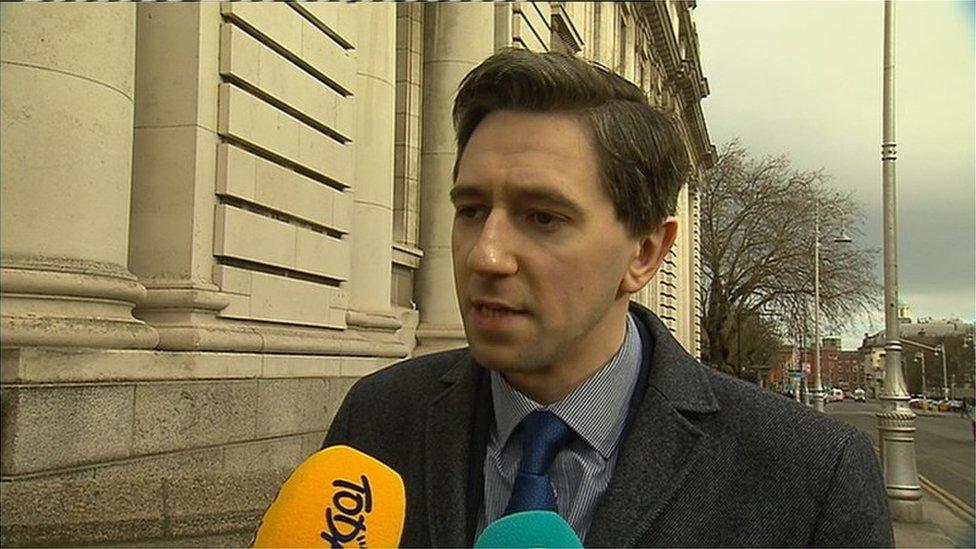
Simon Harris said it was fitting the government had approved the wording on International Women's Day
"I'm really looking forward to bringing that wording and the referendum bill into the Dáil tomorrow."
The contentious Eighth Amendment of the country's legal framework enshrines the right to life of the unborn - a provision that renders abortion illegal other than in exceptional circumstances.
Speaking to RTÉ's Morning Ireland, barrister Paul Anthony McDermott said the crucial aspect of Wednesday's Supreme Court finding is that the only place the unborn has any protection under the Irish constitution is under the Eighth Amendment.
"The only right it talks about is the right to life, which is subject to the right to life of the mother as well," he said.
"What the Supreme Court has said in a nutshell is that, other than the right to life, all your constitutional rights start at birth.
"If a baby is born at the Coombe or Holles Street, it gains its constitutional rights at the first cry, but not before then."
The government will formally establish the Referendum Commission on Friday.
It will be chaired by Ms Justice Isobel Kennedy.
The Referendum Commission is an independent statutory body that must be established in advance of any referendum in Ireland to provide unbiased information to the public about the issue.
- Published30 January 2018
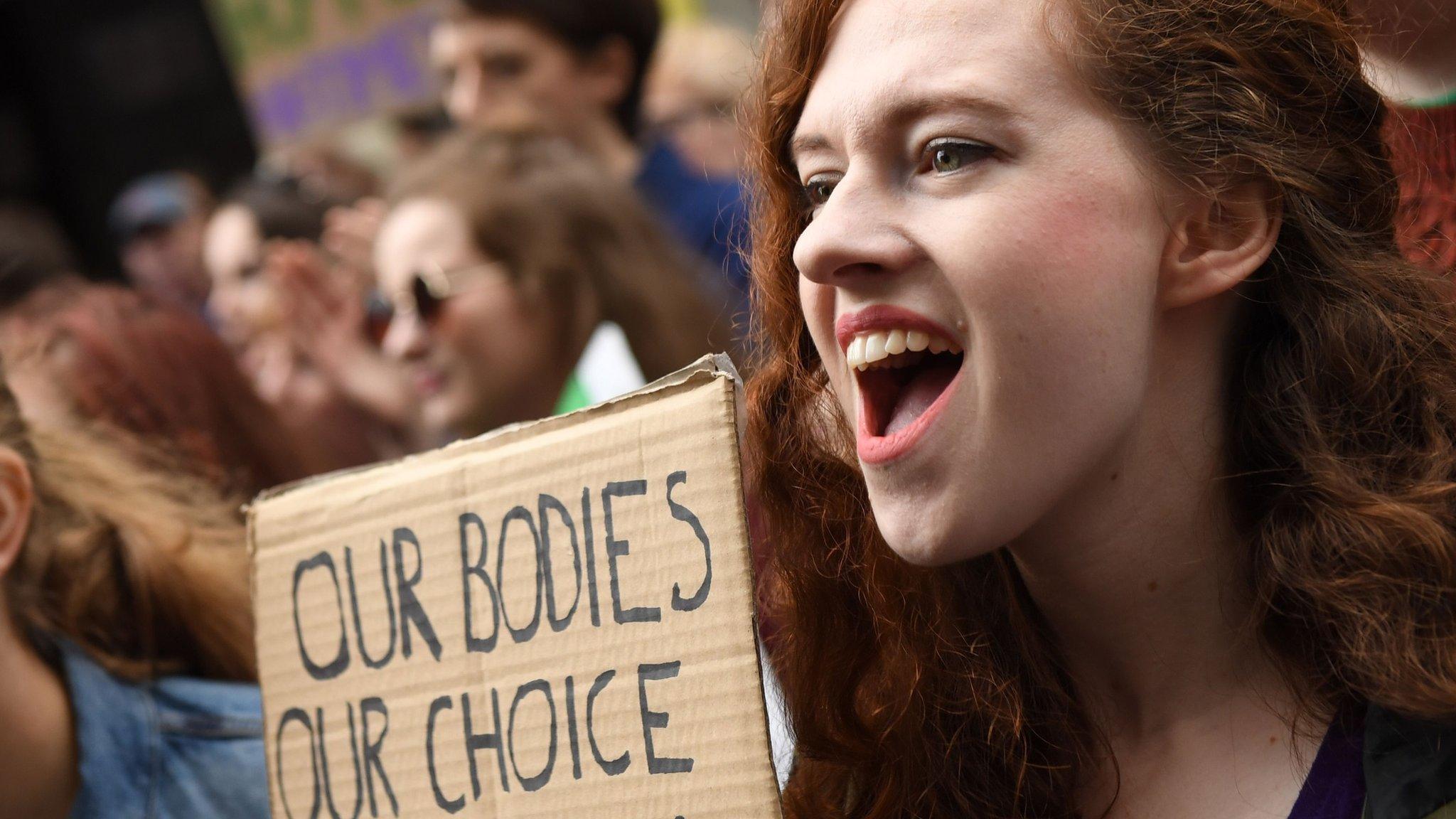
- Published22 February 2018
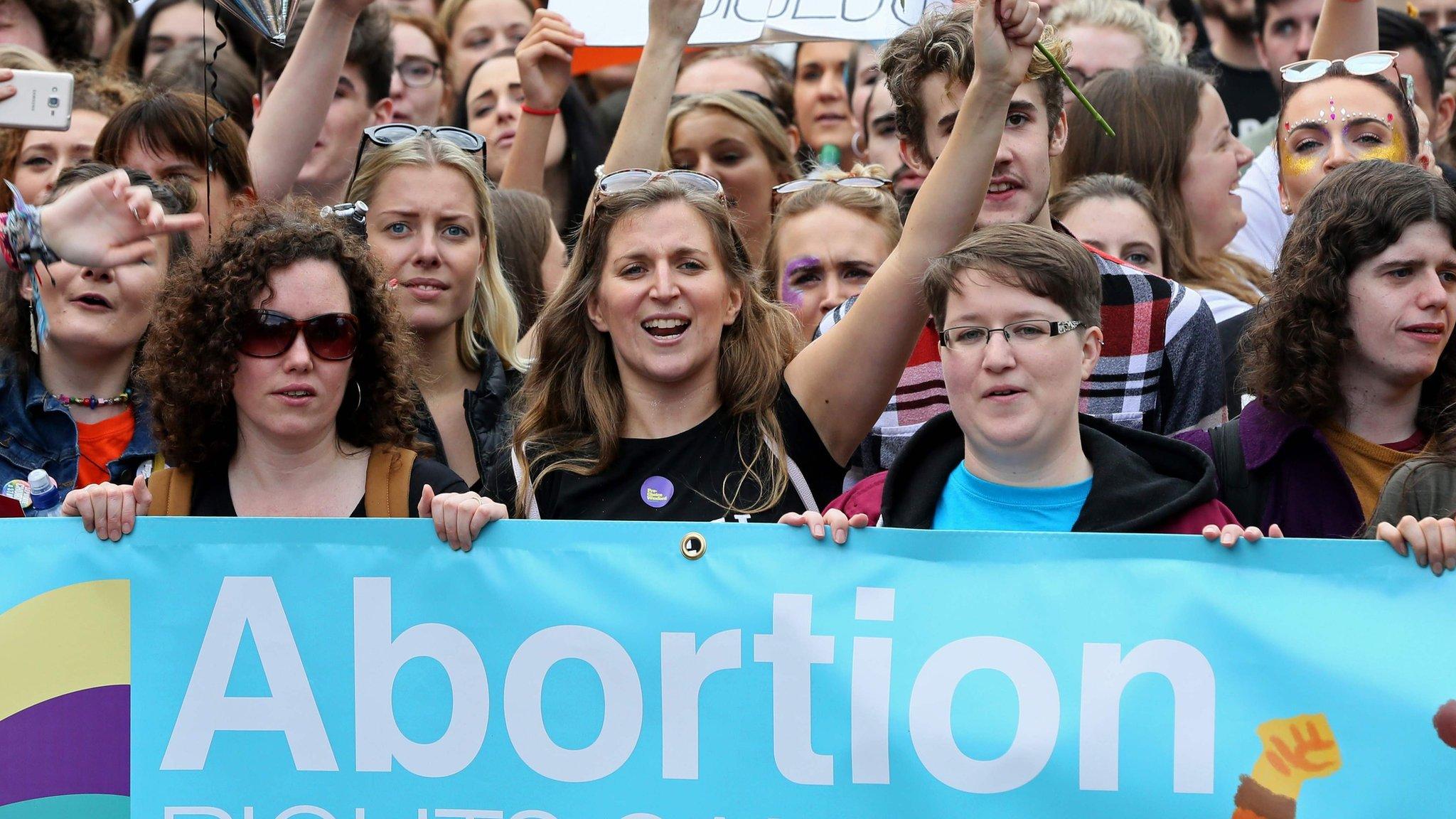
- Published11 January 2018
